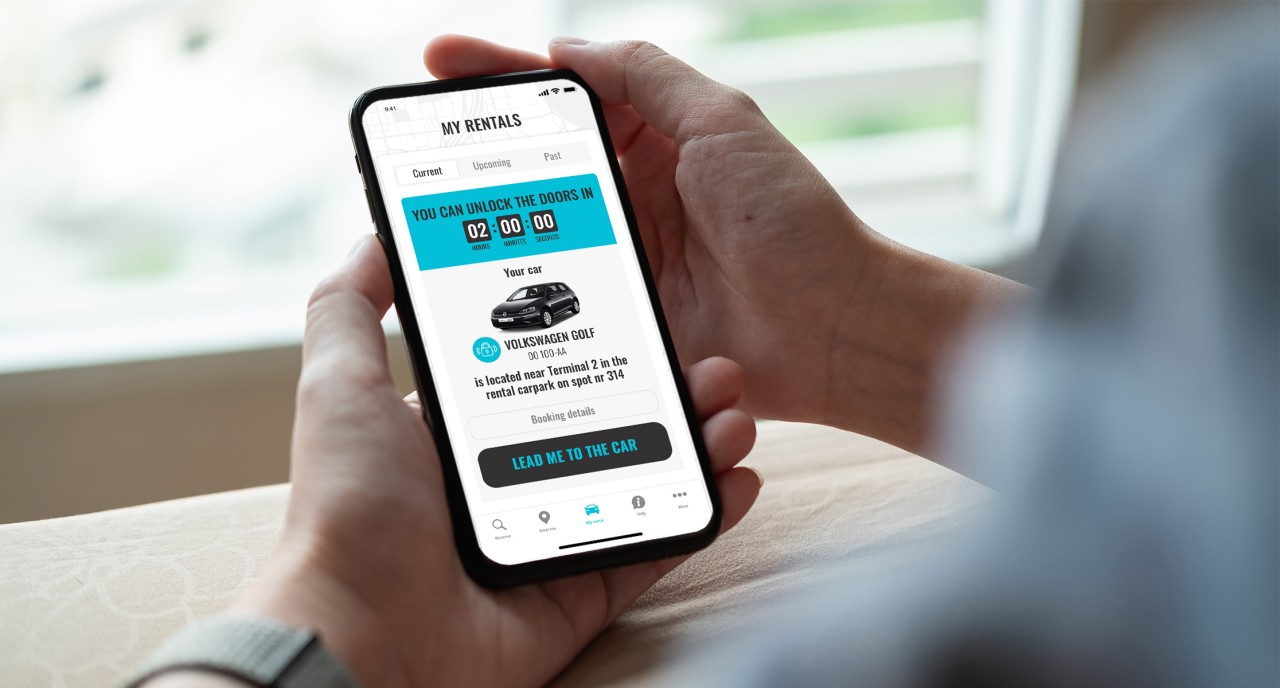Smart rental is the key to the future
The ideal smart rental solution allows the end customer to go through the whole rental process by using only one mobile app. The customers can search, book, add extras and inclusions, start the rental, unlock and lock the car doors, and end their rental without visiting the rental desk. In light of COVID-19, the possibility to skip the desk is not just a convenience but an essential part of staying healthy while travelling. Be it in their home country or abroad—the less contact the better and that is what smart rental can offer.
While large car rental companies have realised the need to change and acknowledge that smart rental is the key to the future, there are still certain aspects that obstruct developments and the actual launch of such service. The technology is not the blocker but the attitude towards technological solutions is currently stagnant and shortsighted.
Closed technology solutions inhibit innovation
For example, in recent years some great developments have been made in the automotive industry. However, in terms of connected cars and the opportunities for cloud-based connectivity and technological partnerships, the industry is still far away from using most of it. Car manufacturers have brand-specific clouds and keyless entry providers need to make a deal with each brand separately before getting access to relevant data. This way, closed solutions keep the industry fragmented, expensive, and slow down the car rental market’s progress to make smart rental widely available for everyone.
Another example of closed technology solutions is the tendency of car rental companies to develop their separate apps. For example, Sixt offers keyless access to rental cars where the mobile phone acts as a key to the car. Such keyless entry is only available to Sixt’s app users and not accessible through distributors’ sites although most sales are done through those. The customers need to download every car rental company’s app to be able to see and choose between their offers. This narrows down the customers’ choices and makes renting extremely inconvenient and overly difficult.
Considering these examples, we can conclude that providing the customers with a wide range of smart rental options, in the sense of both car’s make and model as well as car provider and price range, is currently impossible. All in all, there is no openness when it comes to sharing data, knowledge, and technology.
Open solutions give customers the convenience they expect
Contrary to closed solutions, open technology solutions do not set restrictions on who can use the technology nor what type of technology is used. This approach gives flexibility and adaptability to new types of user and customer requirements. As was pointed out already in May by McKinsey & Company, after the pandemic the customers will expect digital excellence, safe and contactless engagement, and dynamic customer insight. So the demand for platforms that would connect all relevant car rental parties is already here on the market. Openness to aggregated solutions will enable car rental companies to attract a much wider audience than with a single-source approach. This, in turn, provides their customers with frictionless and enhanced mobility experience.
The pain points in the car rental industry can be solved easily with cooperation and readiness to rethink business models and adopt modern technologies. Using an app to offer smart rental for a wider audience is the key for the industry to overcome difficulties created by COVID-19. Car rental industry should not miss this opportunity to choose open technology solutions to provide safe, comfortable, and trustworthy smart rental that meets the high expectations of today’s tech-savvy customers.
First published as a LinkedIn post on 30 July 2020


